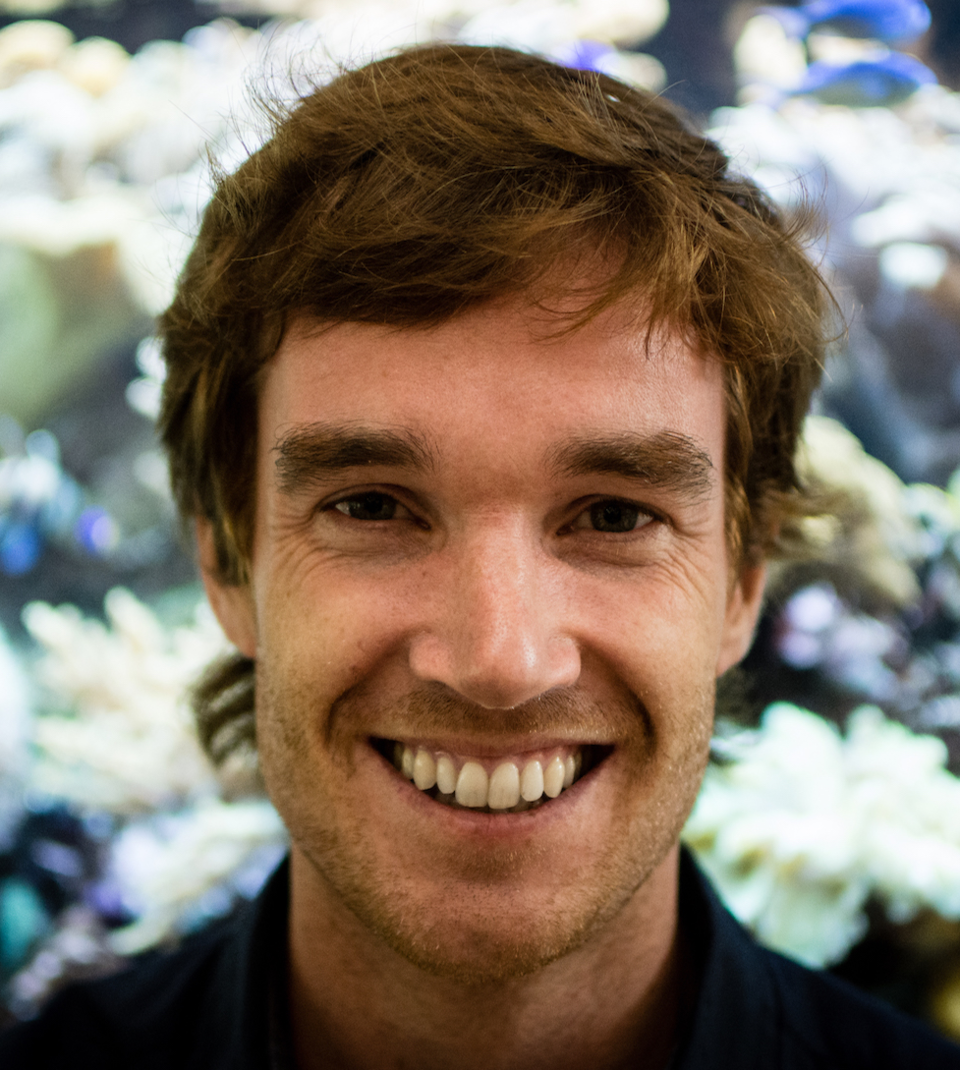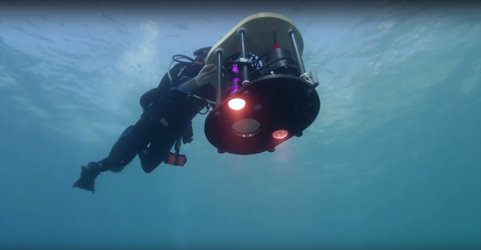Smart and exact mapping of the seafloor
Threats posed to nature by climate change or pollution need to be tackled and understood using real-time objective and automated tools. Meet the German start-up PlanBlue and their innovative imager to map underwater changes at the EBAN Annual Congress in Helsinki 3-5 June.

“Unlike studies of the Earth’s atmosphere and land surfaces (by satellites), changes to our seafloors remain largely undocumented. Oceans cover >70% of the Earth’s surface, yet 95% of its seafloors are unknown,” explains Joost den Haan, co-founder and CEO of PlanBlue.
“Monitoring changes to seafloors is essential, as they are directly linked to all life on Earth and the survival of humanity.”
PlanBlue has developed an automated and standardized monitoring technology, simple to use by anyone and geo-referenced so that measurements over time can be compared and changes can be identified exactly at the same locations. Until now this has not been possible with many traditional (mainly manual) seafloor monitoring technologies.
The PlanBlue techmology uses an intelligent underwater hyperspectral camera to automatically scan seafloor areas, as well as lake bottoms and river beds. The core of the system is its machine-learning algorithm to automate image analysis.
The technology combines hyperspectral imaging with intelligent machine-learning software to identify anything present on the seafloor, e.g. biodiversity, plastics and corrosion. It automates the analyses of the acquired data and automatically produces an evaluation, referring also to statistical data.
All measurements are combined with seafloor maps and exact location by use of GNSS data to support the revisits and re-analyses of the exact same seafloor areas again and again.

The PlanBlue technology is based on a technology originally developed at the Max Planck Institute (MPI), called the ‘HyperDiver’. This technology was developed as of 2013. In 2017, PlanBlue successfully turned the ‘HyperDiver’ into the ‘PlanBlue technology’.
The team
’PlanBlue's four founders are Joost den Haan (CEO), Hannah Brocke (COO), Guy Rigot (CTO) and Raja Kandukuri (CIO). In total the team is composed of 7 full-time employees and three freelancers. The main strength of the company is the high diversity within the team of skill-set and professions.
Since 2017, PlanBlue joined the GNSS-Accelerator, participated in all three Climate-KIC batches, won several prizes, including the Galileo Masters 2018, and has multiple business angles and one VC on board.

EBAN Annual Conference 2019
Meet the PlanBlue entrepreneurs at the EBAN Annula Congress 2019 in Helsinki, Finland, 3- 5 June 2019, where they are ready to present and discuss their solution.
The EBAN Annual Congress is one of Europe’s largest and most international business angel events held annually by EBAN in cooperation with its best members.
After 19 successful editions of the event, the last of which took place in Malaga in 2017 and Sofia in 2018, this year’s edition of the event is coming to Helsinki, Finland on 3-4 June 2019 at Kaapelitehdas (Cable Factory) and will be organized by the Finnish Business Angels Network in collaboration with Arctic15.
The EBAN Helsinki 2019 will be a pool of new ideas and trends, bringing together the world’s most eminent business angels, entrepreneurs and opinion makers, and enabling networking and deal making with experts in the field.
Get the EBAN Annual Conference 2019 Agenda here.
ESA Business Applications and Space Solutions
ESA’s Business Applications and Space Solutions programme has a network of 20 ESA Business Incubation Centres, 15 ESA Innovation Partners and 14 ESA Ambassadors throughout Europe. It co-funds projects and start-ups, while also offering technical and business support to companies that seek to deliver rapid innovation and to raise private investment.
Overall ESA spends €400 million a year on strengthening the competitiveness of European and Canadian companies in the global markets for both satellite communications andr downstream applications.
The 20 ESA Business Incubation Centres (ESA BICs) form the largest ecosystem in the world for space-related entrepreneurship and have fostered over 700 start-ups throughout Europe. Spread across some 60 cities in 17 countries, more than 300 start-ups are currently under the two-year business incubation development booster programme, with another 180 joining yearly.







